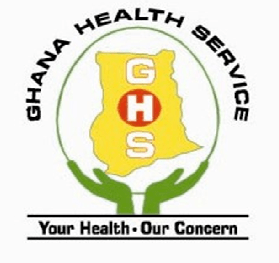
By Samuel SAM
The Executive Director of Vision for Accelerated Sustainable Development (VAST-Ghana), a civil society organisation, Labram Musah, has called on the government, through the Ministry of Finance, to review upwards the excise tax rates on unhealthy products such as tobacco, alcohol, sugar-sweetened beverages (SSBs), ultra-processed foods (UPFs) and other harmful products as part of a comprehensive fiscal and public health strategy.
According to him, by increasing excise taxes on tobacco, alcohol, SSBs and other health-harming products, Ghana can build a healthier, wealthier and more resilient future.
“The health of Ghanaians is the foundation of the nation’s productivity, and no economic argument should be strong enough to undermine that,” he said.
In a press statement, Mr. Musah noted that the Excise Duty (Amendment) Act, 2023, introduced an evidence-based approach to levying taxes on products that cause disproportionate harm to population health.
He explained that existing evidence shows excise taxes on such products are among the most cost-effective interventions available to governments. Therefore, a review of these taxes would help to prevent and reduce harmful consumption, protect young people and low-income households, and mobilise predictable revenue to strengthen health systems overwhelmed by the rising tide of non-communicable diseases (NCDs).
“The call for tax reduction by industry actors is, therefore, misplaced and regressive as it represents a deliberate attempt to shift attention from public health imperatives to profit maximisation,” he stated.
Mr. Musah urged the Ministry of Finance to remain steadfast in prioritising the health and well-being of Ghanaians above corporate interests, in order to achieve the healthcare policy objectives outlined by President John Dramani Mahama.
He cited the World Health Organization’s Saving Lives, Spending Less report, which highlights the economic benefits of preventive health measures. “Every US$1 invested in tobacco control yields a US$7 return; every US$1 invested in alcohol control generates a US$9 return; and every US$1 invested in curbing unhealthy diets delivers up to a US$14 return. This demonstrates that strategic excise taxation and prevention measures are not only life-saving but also economically rewarding,” he explained.
He stressed that every cedi lost through reduced excise rates would translate into thousands of preventable deaths, increased hospital admissions and diminished workforce productivity. “The long-term sustainability of the health sector and the broader economy depends not on appeasing industry lobbyists but on reinforcing a tax system that internalises the true social cost of harmful products,” he added.
To raise significant revenue for healthcare investment while reducing consumption of harmful products linked to chronic diseases, Mr. Musah proposed that the government increase excise taxes on harmful products such as tobacco, alcohol and sugary drinks by 50 percent. This, he said, would boost health sector funding and save lives amid dwindling donor support, underscoring the need for renewed domestic resource mobilisation to address Africa’s growing health challenges.
He further called for periodic tax adjustments indexed to inflation, coupled with strengthened enforcement and regional cooperation, to sustain the deterrent effect of such taxes and prevent cross-border leakages.
Mr. Musah also urged government to reform the current excise tax structure to make it more effective and less susceptible to industry manipulation, tax avoidance and evasion. He recommended the implementation of a specific tax system—based on per stick for tobacco products and per content for alcohol—and the introduction of an ad valorem excise tax on ultra-processed foods to discourage excessive consumption of unhealthy foods.
Additionally, he called for the adoption of a minimum pricing unit to set a threshold for all alcohol products, as part of broader efforts to protect public health and enhance accountability in Ghana’s fiscal and health systems.
The post VAST advocates health taxes and accountability appeared first on The Business & Financial Times.
Read Full Story

















Facebook
Twitter
Pinterest
Instagram
Google+
YouTube
LinkedIn
RSS